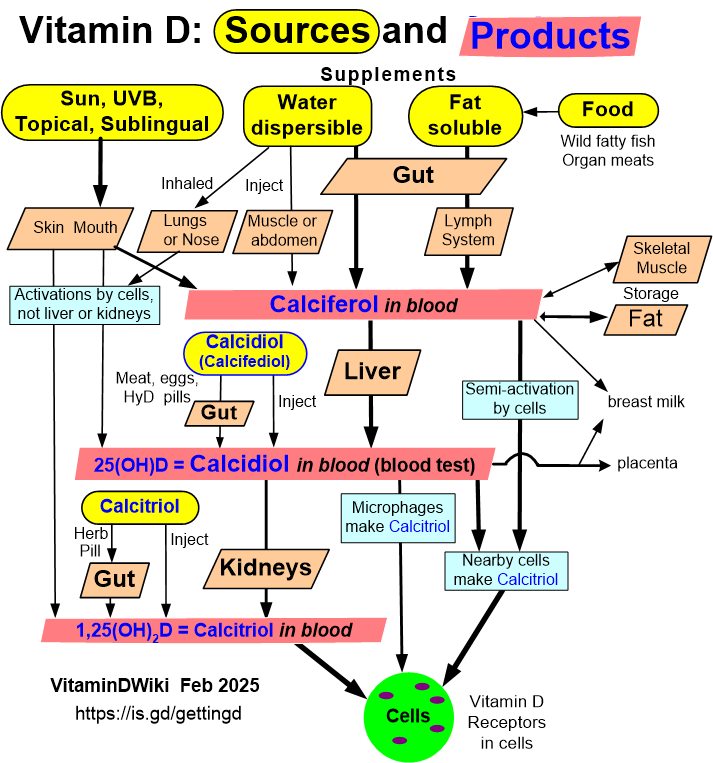IBS quality of life improved by vitamin D (50,000 IU every two weeks) – RCT
Effect of vitamin D on gastrointestinal symptoms and health-related quality of life in irritable bowel syndrome patients: a randomized double-blind clinical trial
Neurogastroenterology & Motility, DOI: 10.1111/nmo.12851
A. Abbasnezhad1, R. Amani2,*, E. Hajiani3, P. Alavinejad3, B. Cheraghian4 andA. Ghadiri5
 click on chart for details
Quality of Life category listing has items
1. Intervention AND Gut
{category}
click on chart for details
Quality of Life category listing has items
1. Intervention AND Gut
{category}
ALL 8 measures improved by Vitamin D

Background
Low-grade mucosal inflammation and immune activation are involved in the pathogenesis of irritable bowel syndrome (IBS). Furthermore, IBS symptoms are associated with a significantly higher prevalence of psychological distress, which in itself results into an impaired quality of life (QoL). Vitamin D could ameliorate the symptoms of patients suffering from IBS through its beneficial effects on psychological factors and inflammation.
Methods
A total of 90 IBS patients participated in this double-blind, randomized, placebo-controlled study. Participants were randomly selected to receive either 50 000 IU vitamin D3 or a placebo fortnightly for a period of 6 months. Patients reported their IBS symptoms at the baseline and monthly during intervention periods. The IBS severity score system (IBSSS) and IBS-specific QoL questionnaires were used at the baseline and postintervention.
Key Results
Over the 6-month intervention period, a significantly greater improvement in IBS symptoms such as abdominal pain and distention, flatulence, rumbling, and overall gastrointestinal (GI) symptoms (except dissatisfaction with bowel habits) was observed in the patients receiving vitamin D as compared to the placebo group. The IBSSS and the IBS-QoL scores in the vitamin D group significantly improved compared to the placebo group postintervention (mean IBSSS score change: -53.82 ± 23.3 vs -16.85 ± 25.01, p < 0.001, respectively; mean IBS-QoL score change: 14.26 ± 3 vs 11 ± 2.34, p < 0.001, respectively).
Conclusions & Inferences
Vitamin D seems to be an effective and safe option to improve QoL and symptoms of IBS. ClinicalTrials.gov (NCT02579902).
